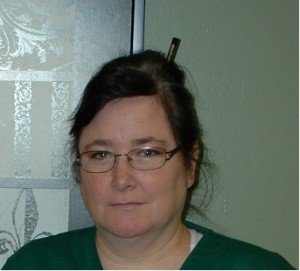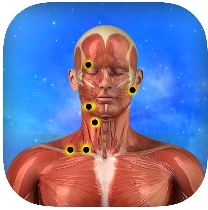
I began as a sole practitioner in a professional building and just kept growing until now I am located in a storefront with 3 treatment rooms and 4 massage therapists working for me full-time. I also have an esthetician working for me part-time, but her services are just a convenience to my clientele.
Our clientele varies greatly in age and sex. People in the health care industry are by far the largest segment professionally, but other than that our clientele varies from students and servers to professional and business owners.
Our specialty is simply listening to our clients and customizing their massages to their needs. My website helps people choose the therapist most appropriate to their needs and style preference and if the therapist they book with does not feel she is best suited she/he will recommend another therapist.
I work in Hoover, Alabama about half a mile from the Galleria Mall in a small shopping center. I live about a mile away.
2. Tell us why you chose to go into massage and at what point in your life did you decide to do so? What were you doing at the time? Where did you first hear about the massage career? What factors influenced your decision? What were you looking to get out of this decision?
My interest in massage therapy began in 1991. I had just been discharged after serving a little over 9 years in the Marine Corps and was going to school for accounting. I was struck by a semi on the interstate and I received massage therapy twice a week as part of my treatment.
After my recovery, I began to practice what I learned on friends and family. I find giving massage to be very relaxing, and much better than squeezing a stress ball. In 2009 I was massaging a massage therapist friend of mine who was going through med school, and she said “You’re better than the girl I trade with, why don’t you go to school and get licensed so that you can get paid for this?” It was a no-brainer moment. All I could think was “why not?” It hadn’t occurred to me to do something that wasn’t administrative.
At the time I was the CFO of a Corporation that ran homes for the developmentally disabled. While I was autonomous in that position and really liked the owner, I had been in accounting for 18 years and, frankly, I was bored.
I really enjoyed massage and helping people, and once the idea was planted it just made sense. At first I just enjoyed the challenge of learning a new career and the myriad tasks a business owner must tackle, not to mention performing massage. As my business grew my thoughts expanded to residual retirement income and having something to leave to my grandchildren.
3. What were some of your questions and concerns before further pursuing your massage therapy goals? Talk about concerns with school and the profession itself.
My first questions were how long would it take, and how much would it cost. I had 3 choices, one was a local college that only offered a 2 year degree and was very very expensive for a career that did not require a 2 year degree.
A second choice turned out not to be a choice at all as the school closed down. The 3rd choice was a local massage school that was reasonably priced and would take 6 months going full-time but was not accredited and therefore would not allow me to get an education tax credit.
There was really no way to find out how good the schools were, so I decided to have faith in my own ability to learn what I needed and get the most out of the school.
Regarding the profession I had a couple concerns. One was about some people’s perception of massage being seedy, but decided that I could deal with the antiquated opinions of the few. I was also concerned that with the downturn in the economy the client pool would be reduced at a time when people were being forced to change careers and choosing the quick and relatively inexpensive alternative of massage therapy. More competition and less clientele is not ideal. Once again, I decided to have faith in myself. If others could succeed, I could too.
4. What is your specialty and what are the top three contributing factors to your success today?
As I said earlier, our specialty is simply listening to our clients and customizing their massages to their needs. It’s sad that this is what makes us special. People can buy a coupon and go anywhere to get a relaxation massage, but when they hurt, they come to us. That isn’t to say we don’t give great relaxation massages too.
The top 3 contributing factors to my success are (1) I treat my clients the way I would want to be treated, (2) I treat my therapists the way I would want to be treated, (3) I only hire therapists that share my philosophy on how to treat clients and give a deep tissue massage I’d be willing to pay $70 for.
5. What do you like about your specialty? What do you like about what you do in general as a career? Why?
I enjoy the challenge of finding the source of someone’s pain and relieving it.
6. What do you not like about what you do? Why?
I don’t like networking. While I’m very comfortable talking to strangers who are interested in massage, I feel very awkward approaching strangers that I am trying to interest in massage.
7. If there were three things you could change about your work or the industry as a whole what would they be? Why would you change them? What would you change them to?
1) I would love to see a national massage therapist wanted list. It’s sad that CraigsList is where I have to go to find a therapist. The associations and schools are not helpful and local papers are defunct.
2) I’d also love to see a website where therapists could chat with each other and post recommendations about products, and websites or ask for advice. A place that only therapists could post, not suppliers or schools.
8. How long do you plan to practice and what do you plan to do after?
I plan to practice until I retire. Hopefully one of my granddaughters will be managing the massage business by then and I’ll have residual income to supplement my retirement.
9. Do you currently have another job or business whether full time or part time? Tell us a bit more about it and how you are able to juggle that with your massage career?
I don’t have another business or job now, but when I began I still had a salaried job. I had a flexible administrative job, so I was able to work around massages. It also meant that I didn’t have to stress over making enough money to pay my bills, allowing me time to build a clientele.
10. What are some mistakes you made in your career pursuit that you’d like to warn other students about so they can learn from your experience and avoid it?
My biggest mistake has been wasting money on advertising that didn’t pay off. When I moved to my new location I did a 6 month advertising blast: Radio, newspaper, local coupon mailings and a monthly coupon deal, a magazine that was distributed to local country clubs, media board at the local recreation center, and a service that sends birthday offers to local residents during their birthday month.
For the most part the only people who came in saying one of these was how they found me had a 50% off coupon. I can only hope that after seeing and hearing my ads for 6 months people will remember that there’s a massage place on Lorna Rd when they need a massage. I lost money on the 50% off coupons, but at least my staff had work.
11. What would you advice someone who is looking at massage therapy schools? What do you recommend they look for and how? How do you recommend they determine whether the school is the right one for them?
I suggest receiving massage from various people and asking where they went to massage school and what they thought of the school. Take into consideration the quality of the massage you received in addition to what they have to say.
12. What do you recommend for someone who wants to go to massage school but cannot afford it?
If you go to an accredited school you can get grants and student loans.
13. What are your three biggest points of advice for an aspiring massage therapist today? What should they do/not do? What should they think about and consider?
If you want to work for someone else:
1)Get a massage there and see if the service you receive and the people you meet there appeal to you. If you are not happy where you work, it will reflect in the massage you give.
2) Read the reviews of a perspective employer.
3) Find out how much you will be paid and how many massages a week they are confident you will get. If commission, are you paid on the value or the amount received? Places that have a lot of coupons out there can wear you out while paying you very little.
If you want to work for yourself:
1) Be realistic. Just because you give a great massage doesn’t mean people will come. If you want to work for yourself, you need a plan on how you will let people know about you and be prepared to take time to build a regular clientele.
2) You build a reputation on what you excel at, not what you are good or adequate at. Figure out where you excel and promote it.
3) If you do not have business experience, consider working for someone else for a while. When you own your own business, you have to do everything that you don’t pay someone else to do. This includes everything from cleaning the toilet to bookkeeping to building your website to networking to drafting contracts and email advertising.
14. Any open thoughts / comments – anything else that you’d like to share about yourself, the massage industry, profession, future, etc? If nothing, make one prediction for the future of massage?
Massage used to be something that “rich” people did. If you were anyone else, it was something that you did while on vacation, a special indulgence or a gift. Today, with the help of the multitude of discount coupons available, it’s becoming more accepted as something available to anyone. It used to be hard to find a therapist unless you went to a spa or chiropractor, now you can search the internet and dots show all over the map.
I think in the not too distant future massage will be seen by the masses as going hand in hand with chiropractic care, physical therapy, working out, sports and holistic healing. I think as more people are exposed to the benefits of massage and the economy improves, those deep discount coupons will be less common and more therapists will be able to come out of their obscure places of business to compete with the spas and corporate chains. Massage will be as easy to find as a nail salon.
15. What is your passion outside of massage? What are your hobbies and interests which you pursue when you are not working? Tell us why you enjoy what you enjoy.
My passion is my family and spending time with my grandchildren. I enjoy traveling; going new places and trying new things. Life really is an adventure.
Jeanette (Jenae) Jeffers is certified in Hot Stone Massage.She has had continuing education in Cranial Sacral Therapy, Myofacial Release, Cupping, Stretchng and Aromatherapy. You can find her on her website here.








Leave a Reply